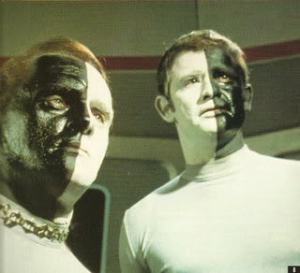Roland Emmerich. Starring Channing Tatum, Jamie Foxx, Maggie Gyllenhaal, James Woods
It’s typical. You wait years* for a Die Hard in the White House film and then two turn up in the space of a few months! (*Not actually true). Gerard Butler’s Olympus has Fallen got the drop on White House Down by coming out first, but which 1600 Pennsylvania Ave based action extravaganza has the edge, or like squabbling politicians are they just as bad as each other?
John Cale (Tatum) is a Capitol police officer with dreams of getting on the President’s secret service detail in hopes of impressing his daughter Emily, and he manages to swing an interview with the assistant head of the secret service Carol Finnerty (Gyllenhaal). Unfortunately Finnerty knew Cale at college and despite him saying that he’s changed she still sees a man who isn’t up to finishing what he starts, and he fails to get the job.
After lying to Emily that he’s got the job, father and daughter join a tour of the White House, and even get to meet President James Sawyer (Foxx). It’s a big day for Sawyer, he’s about to pull all US troops out of the Middle East, a strategy that hasn’t gone down well with a lot of people…and this includes the mismatched bunch of mercenaries who manage to storm the White House (with a little inside help).
Before you can say “I’m going to count to three…there will not be a four” all the secret service agents are killed, and the bad guys are on the verge of capturing Sawyer…luckily Cale manages to escape their clutches and before you can say “Yippie Kay Ay…” (I’ll stop that now) he’s become a one man army taking down the terrorists as he tries to protect the President and save his daughter.
As you can probably tell, there’s more than a hint of Die Hard about White House Down, but despite my note of sarcasm I actually think this is the best Die Hard film of the year, which is kinda sad considering we had an actual Die Hard film this year.
It’s hard not to compare and contrast this with Olympus has Fallen given the films tread extremely familiar ground, but I apologise in advance anyway. They’re very different films however, and for me White House Down gets right everything that Olympus got wrong.
For starters it doesn’t play the straight bat that Butler’s film did. Olympus has Fallen was so earnest and po-faced that it almost tripped over into parody. By contrast Emmerich’s film has no such pretensions. It knows it’s a ludicrous copy of Die Hard, and refuses to apologise for it, and the film is peppered with amusing lines, though it thankfully stops short of knowingly winking at the audience.
Emmerich of course is used to destroying national monuments, and continues the trend, becoming possibly the first man in history to trash the White House twice. He does spectacle well though, and there’s spectacle in spades here, and despite the long run time and the fact the film is a little baggy in places, on the whole he keeps things moving at a fair gallop. That isn’t to say the film doesn’t have flaws, but being boring certainly isn’t one of them.
The second thing it has over Olympus is its hero. This isn’t to say Tatum is any better an actor than Butler (both are fairly limited) but Tatum’s Cale wins out by being the likeable everyman, the wrong guy in the wrong place etc. By contrast Butler was exactly the right man in the right place, and ergo far less interesting.
The other thing it gets right is the rest of the casting, from Foxx’s excellent and believable statesman, to Gyllenhaal convincingly standing toe to toe with a bunch of gruff male character actors and never looking out of place. Throw in James Woods chewing the scenery with aplomb, plus a supporting cast including ever reliables like Lance Reddick and Richard Jenkins, plus a child actor who isn’t annoying, and you’re onto a winner. Heck even the henchmen get personalities (my favourite being the guy who seems to base his performance on Bennett from Commando).
As mentioned the film is a tad too long, and as silly as the premise is, Emmerich takes it to dizzying new heights of ludicrousness with each passing minute, and it curiously it gets less interesting as the nuclear missiles prepare to fly—but then Olympus has Fallen had a similarly ludicrous McGuffin with none of the self-deprecation White House Down has.
It’s a stupid popcorn action film, but as stupid popcorn action films go it’s hugely enjoyable so long as you stick your brain into neutral. So ignore just how easy it is to seize control of the White House, just enjoy the witty dialogue and the sight of POTUS with a rocket launcher.
White House Thumbs Up!
